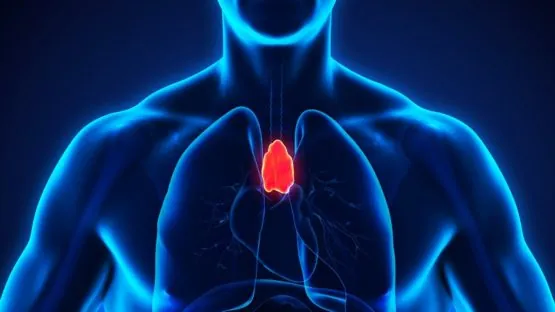A small clinical trial, which was conducted by a team of researchers led by Dr. Greg Fahy, has shown for the first time in humans that reversing biological age may be possible.
The results of TRIIM are in
The researchers spent a year running the Thymus Regeneration, Immunorestoration, and Insulin Mitigation (TRIIM) trial, which included 9 volunteers aged between 51 and 65. The trial was aimed at testing if a growth hormone and drug combination could be used safely in humans to restore thymic function lost due to aging [1].
The thymus is a vitally important immune organ responsible for producing T cells that combat infections, repel invading pathogens, and destroy cancer. However, after puberty, the thymus begins to shrink in a process known as involution; gradually, the T cell-producing tissues turn to fat, and the organ wastes away with a corresponding decline in T cell production and loss of immune function. This, of course, then leaves us wide open to attack from pathogens and diseases.
Previous animal and some human studies suggested that growth hormone can stimulate the regeneration of the thymus but can also encourage the onset of diabetes. With this in mind, the researchers added two anti-diabetic drugs, dehydroepiandrosterone (DHEA) and metformin, to the treatment regimen.
The participants were given a combination of growth hormone and two types of diabetes medications during the study; on average, their biological ages were reduced by an average of 2.5 years, as measured by the epigenetic clock. This clock works by examining the epigenome, the alterations to gene expression that predictably change throughout lifespan and so can be reliably used to estimate a person’s biological age.
This measurement is a much more accurate way to determine the biological rather than chronological age of a person. Some people are epigenetically older or younger than they are chronologically, meaning that they have aged faster or slower, respectively. Such a measurement system is therefore ideal for measuring changes to biological age in order to test interventions that target the aging processes.
In this study, the participants reduced their biological age by an average of 2.5 years, which is significant, and demonstrates for the first time in humans that it is possible to reverse aging, as has been shown in other species. In addition to the reduction of biological age, the participants also showed signs of immune system rejuvenation.
The thymus in particular showed seemed to improve its level of function, which is important as thymic output is a strong determinant for cancer risk, as shown in a study from last year that included Dr. Sam Palmer [2]. Of the nine participants, the researchers found that seven had experienced regeneration, with fat tissue in the organ being replaced with new T cell-producing thymus tissue, a reversal of what happens during aging.
Conclusion
It should be noted at this point that the results are only preliminary due to the small scale of the clinical trial, and the researchers are urging caution until larger studies can be launched. There was also no control group included in the study, and the results should be viewed with this in mind. This all means that a larger study needs to happen next in order to ascertain safety and efficacy and hopefully this will happen soon. That said, this gives a tantalizing hint at what may be possible in the not too distant future.
Regenerating the thymus could be a major breakthrough for combating the diseases of aging and helping people with weak immune systems, such as older people who often fall prey to infectious diseases such as pneumonia, as their immune systems cannot fight back effectively. This research also has implications for cancer and aging research in general, and it is the first evidence that interventions that target aging could work in humans.
If you would like to learn more about Dr. Fahy and the background to this research, we also interviewed him about rejuvenating the thymus to prevent age-related diseases in a 2017 interview, where he goes into more details about the research published this week. Dr. Fahy also presented a talk at Ending Age-Related Diseases 2019 about this approach and the results of his company’s Phase 1 clinical trial.
Literature
[1] Fahy, G. M. et al. Aging Cell (2019). Reversal of epigenetic aging and immunosenescent trends in humans. Aging Cell. https://doi.org/10.1111/acel.13028 (2019).
[2] Palmer, S., Albergante, L., Blackburn, C. C., & Newman, T. J. (2018). Thymic involution and rising disease incidence with age. Proceedings of the National Academy of Sciences, 115(8), 1883-1888.





